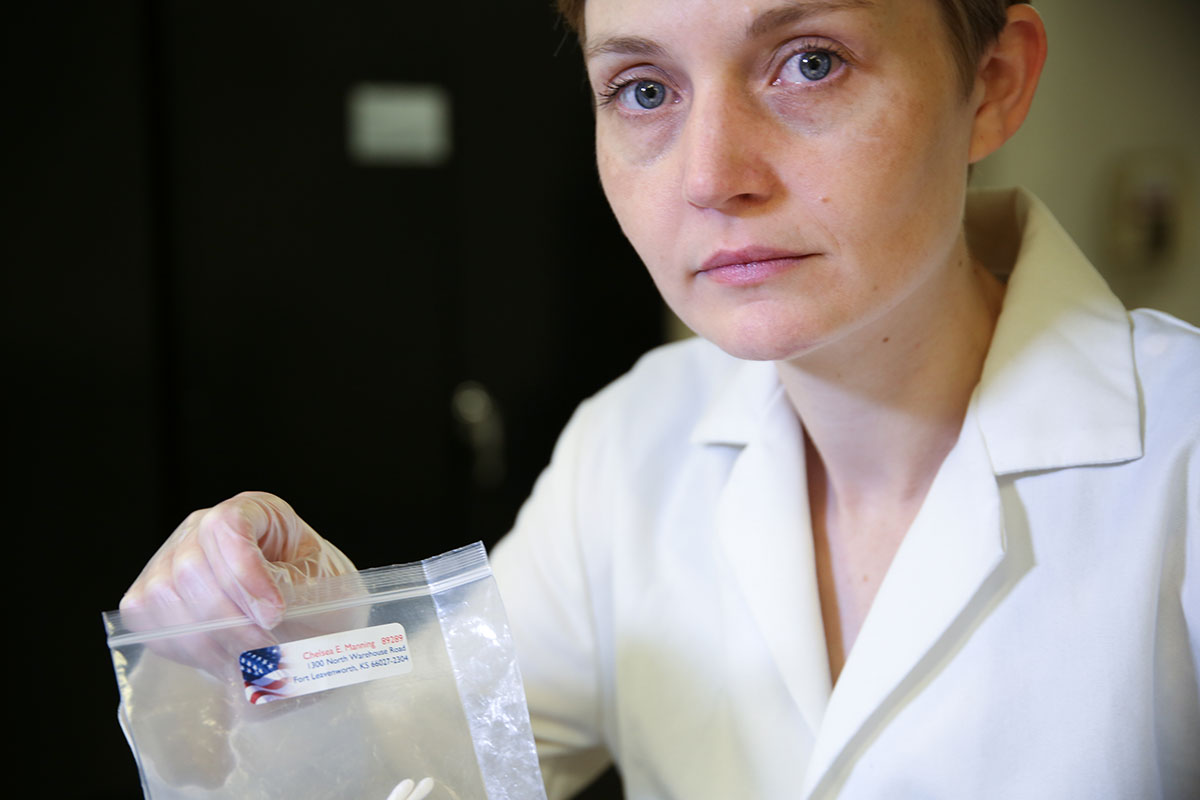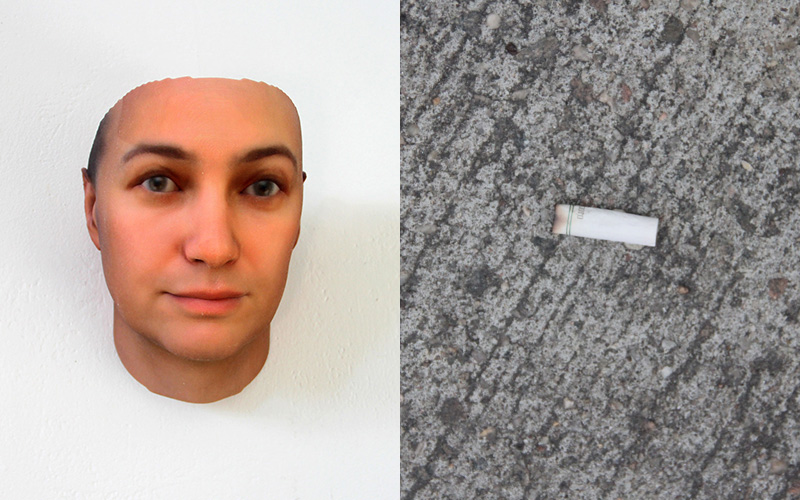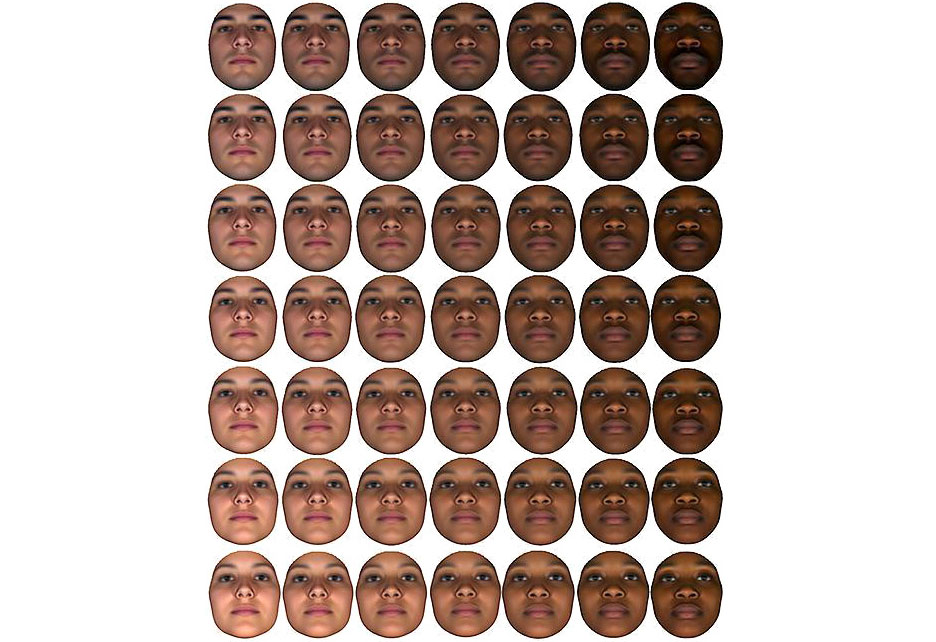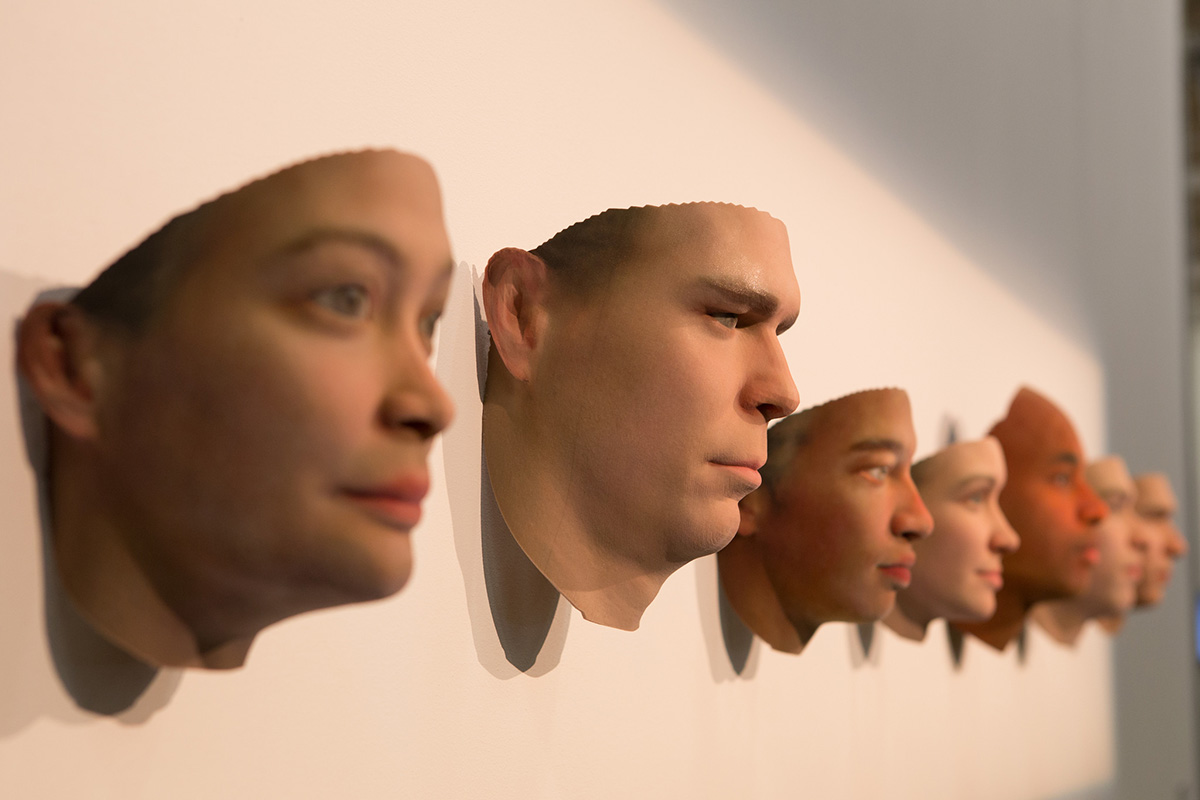Heather Dewey-Hagborg Begins Residency at Thoughtworks
We are pleased to welcome our second resident artist, Heather Dewey-Hagborg, who will be with us over the next four months.

Heather is an artist and researcher known for her work highlighting the implications of DNA as readily-available data, including genetic surveillance and new forms of racial stereotyping.
In her breakthrough piece, Stranger Visions (2013), Heather went undercover collecting cigarette butts, chewed gum and discarded hair she picked up incognito around the city.
Heather took these samples to Genspace, a “community bio-lab” in Brooklyn, and sequenced the DNA found within. She then used this data to build imagined 3D sculptural masks of what these anonymous people might look like.

The results are astonishing and chilling, showing how easy it is to reconstruct physical traits from discarded everyday items.
Stranger Visions was also indicative of an emerging and much larger market, using traits of DNA analysis for a variety of purposes, such as criminal investigation and public shaming. Realizing there was a burgeoning market for this re-purposed DNA, Heather wrote extensively about its dystopic social implications.

Heather also exposed how pre-existing racial and ethnic and gender stereotypes and biases are rife in the creation of seemingly benign, neutral algorithms. This seriously flawed practice contains a bias that affects everyone’s information, and by extension their life: credit, medical analysis, and potentially even job status.
In 2014, Heather released a new product line named Invisible, allowing users to mask their DNA from use in digital surveillance. The spray Erase wipes out the majority of your DNA from any location you spray it.
The companion spray Replace obfuscates the remaining DNA; it contains 50 random DNA samples, making detection of the single unique individual DNA prohibitively complex.
During her time at Thoughtworks, Heather intends to begin a new body of work, currently named Sell/Bio, in which she will research the “histories, infrastructures, protocols and business models” that position DNA as a “commodity to be bought and sold on the open market.”

Taking inspiration from Rebecca Skloot’s bestseller The Immortal Life of Henrietta Lacks, Sell/Bio “connects the dots, giving a face and a name to supposedly anonymous DNA, derived from human cells and put up for sale, presenting a visceral portrayal of the invisible subjects of biological exploitation.”
We are excited to be supporting Heather’s vital new work, and for our staff to be contributing to the project over the coming months.
Keep on top of Thoughtworks Arts updates and articles:
